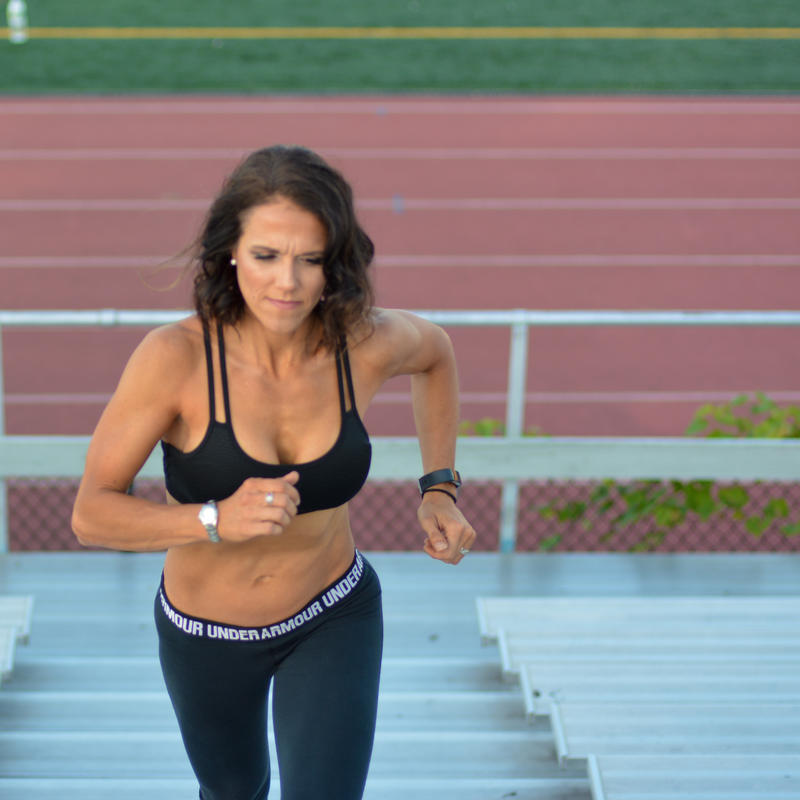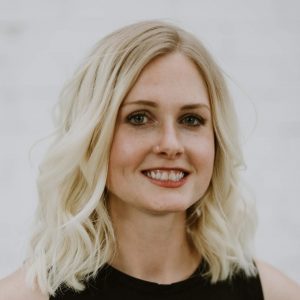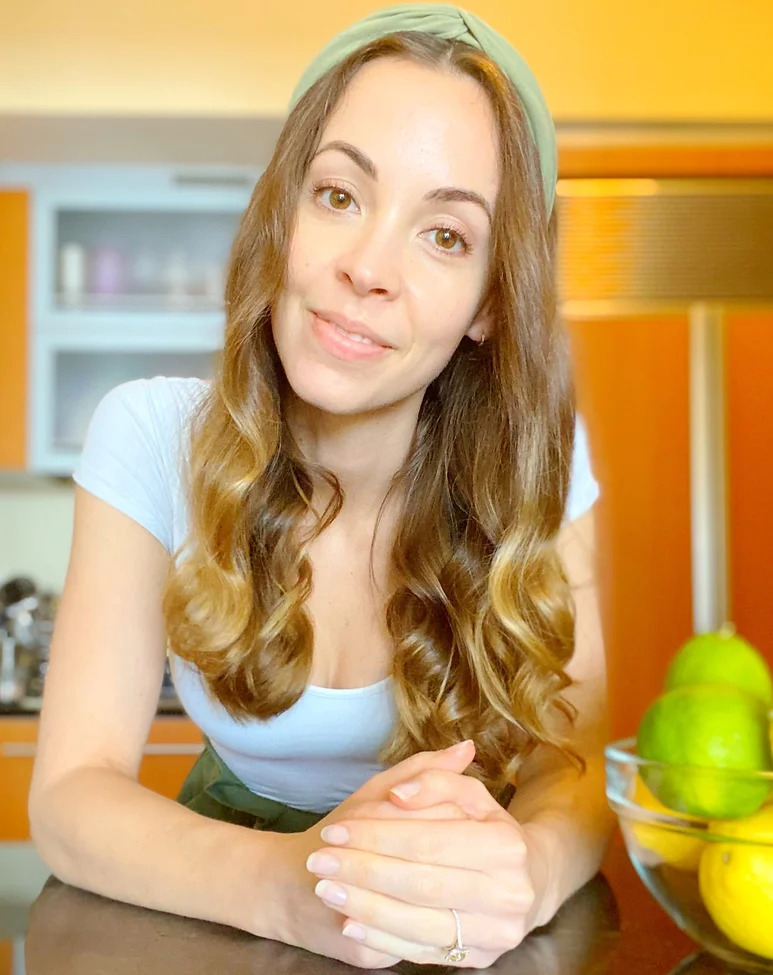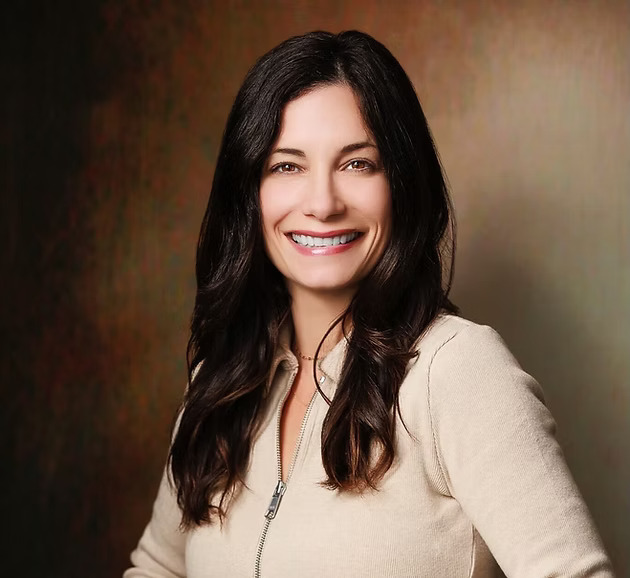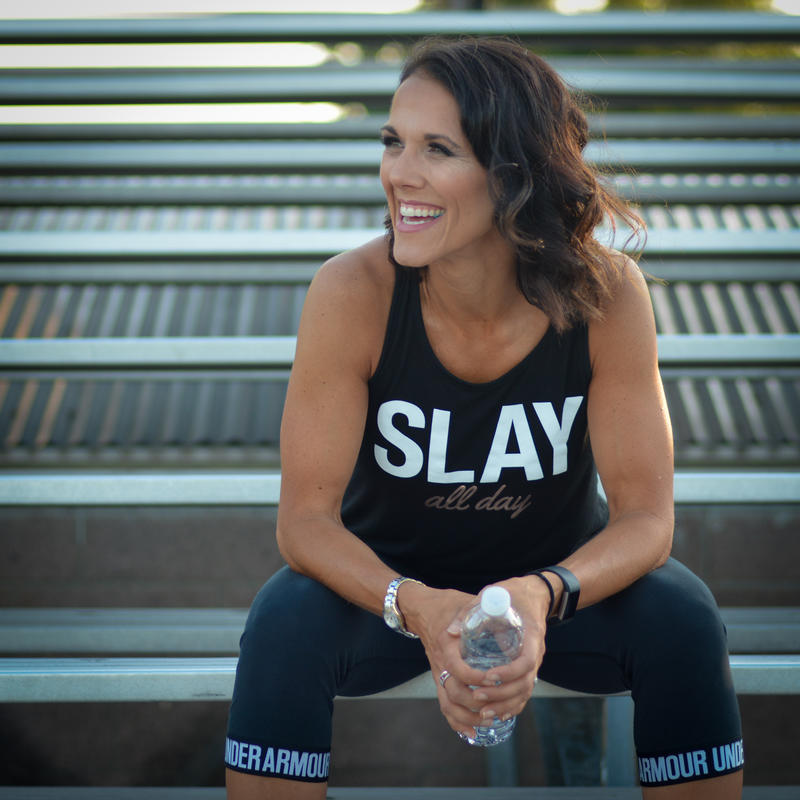
Preparing For Stage Competition: Allison Jackson
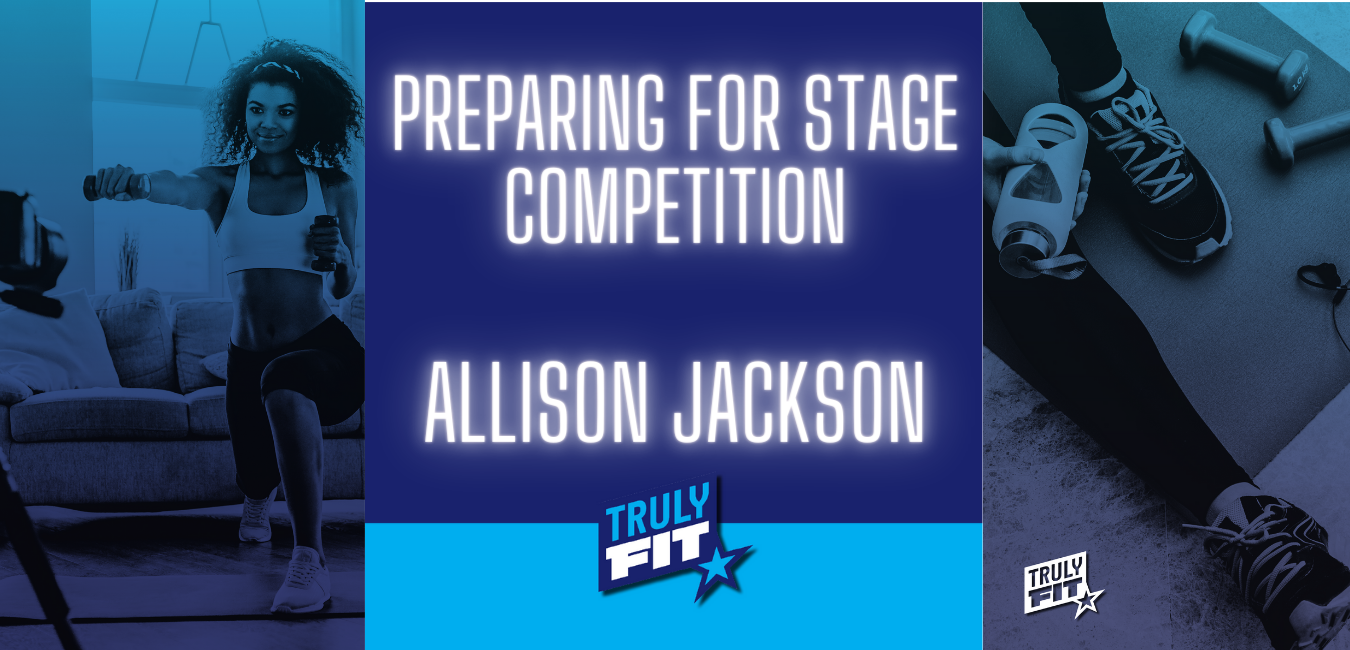
Guest: Allison Jackson
Podcast Release Date: 10/4/2021
Welcome to Trulyfit the online fitness marketplace connecting pros and clients through unique fitness business software.
Steve Washuta: Welcome to the Trulyfit Podcast. I’m your host, Steve Washuta, co-founder of Trulyfit and author of Fitness Business 101. On today’s podcast, I speak with Allison Jackson. Allison is a New Jersey native like myself, she is a coach, a personal trainer, Allison Jackson fitness, you can find her app. She’s a full-time corporate communication professional.
And most importantly, for this podcast, she is a professional figure competitor, that is what we’re going to be discussing today, her process in getting ready for the stage, passing on that information, not only for people who want to get on stage, but really, I tried to use this time with Allison to pass on information to personal trainers who are helping their clients whether it’s their first time, or they work with clients on a regular basis who are trying to be a professional figure competitor.
And we go over the general lifting format that she uses for her contest preparation, whether that is you know, muscle separation, periodization things of that nature, we go over maybe what muscles matter more and more visually, or aesthetically, that we should be aware of when you’re on stage from a judging standpoint, what is the amount of time that someone should expect to go from zero to hero to go from not being on the stage to be able to get on the stage? Or the competition’s clean and other different levels of competitions.
We also delve into the last 72 hours which are very important, according to Alison to getting on stage, what you have to do to sort of tweak your water intake and your sodium in your diet to contest prep ready. So this was a very interesting, very fascinating conversation, something that is intriguing to a lot of people.
And I hope that this information can be used for our personal trainers and our group fitness instructors to pass on to their clients. With no further ado, here’s Allison. Allison, thanks for joining the Trulyfit podcast. Why don’t give the audience a background on who you are and what it is you do in fitness and health.
Allison Jackson: Absolutely. Thanks, Steve so much for having me on. I appreciate it. So I am a born and raised Jersey girl. I’m married, I have two teenagers, I actually am a full-time corporate communications professional, but I’m also a professional figure competitor. And it’s funny, I would say my business found me because I started competing in 2012.
And lo and behold a few years and people kept asking me like, What are you doing to get stage ready? Like how are you losing weight? So I actually started coaching people, and then evolved into this business, Allison Jackson fitness. It’s all online and virtual. I don’t prep people for competitions, which I know most people find hard to believe. But I typically help type corporate busy women get healthy to Get Lean eating foods they love by tracking macros.
Steve Washuta: Cool. So it’s more of a general population training, you’re working with people who are nine to five, they’re busy, they’re working in their gyms, although you’re obviously you have experience as a figure competitor. That’s not your sort of niche now. And the reason is, is it because you just don’t love it as much, or why did you pick this niche?
Allison Jackson: You know, it’s funny, I struggled so much getting myself ready for a competition, that it’s like for me to get someone else ready. Like I just feel like as a coach, it’s very, it’s much more grueling and laborious and intensive. When you’re prepping somebody for a show versus just prepping them to be healthier.
Steve Washuta: Yeah, all makes perfect sense. And I think I’ve talked about this a lot. Young personal trainers really fight to quickly sort of what I call like, niche out and they can’t wait to get a niche and do it. And then there’s always a career arc. And typically, as we get older, we don’t niche and want to go back to the general population.
Because once you’ve built your schedule, and you’ve built a reputation, and you have maybe even a waiting list of people who want to work with you, it’s much easier to work with a general population. And frankly, it’s a little bit more fun, I think. And I think that’s just the natural career arc of a lot of trainers.
Allison Jackson: Yeah, I would totally agree with that.
Steve Washuta: So although that’s not exactly your niche, you do have a lot of experience doing it, obviously. And it’s a lot of accolades, too, as well. I was reading about all of your wins, and your places in the figure competition. So I’m going to sort of go down this scenario with you that I am a personal trainer, which I am.
I, maybe for the first time let’s say, I have a client who wants to be in these competitions. They want to go on stage, they want to train for these comps. So I’m going to ask questions along those lines. You could answer as if you’re passing along the information to a fellow PT. So, from a lifting format, you can talk in a sort of personal trainer lingo because that’s who listens to this podcast.
What is the sort of modalities that you use? Is it a sort of muscle separation? Would you say it is the standard what we consider body Bodybuilding lifting? Where one day you’re doing bi’s and tri’s the next day you’re doing pushing chest and shoulders next day you’re doing maybe a lower body, things of that nature? Is there a periodization? How exactly do you go about that?
Allison Jackson: Yeah, so we do a whole mix of that we do a lot of periodization. And I typically my training doesn’t change much year-round, so I am still lifting heavy, though the compound lifts as well as the accessory work throughout the whole year. The only thing that does change as leading up to a competition, I’m training six days a week versus maybe four or five using the offseason for more recovery.
During that time, I cycle through the heavy Medium and Light lifts, doing, you know, compound sets, supersets, I typically buy, find that two days on one day off, just works really well. And sometimes I’ll throw in an extra day of recovery. Like I try to meet some days just active rest, whether it’s yoga, just a long walk, or stretching.
But a lot of you know the usual bodybuilder squats, deadlifts bench press, I know a lot of people, women think that the exercises or workouts are different for them. But it’s the same as the guys are doing, we’re doing the same thing. It’s just a matter of depending on what category you’re competing in.
So I figure you know, the bikini is a little less muscular physique and bodybuilding are much more muscular is how much heavier you go, and how much more muscle you need to build. But those exercises really stay the same.
Steve Washuta: Do people typically start out in a bikini because it’s less muscular as they start to build their frame or that’s not necessarily the case.
Allison Jackson: It really depends on how much muscle an individual is carrying. So when I started, that doesn’t 12 I went right into a figure I never started in a bikini. But most girls that maybe don’t have a lot of lifting experience don’t carry a lot of muscle. They do start in bikinis, but some women, you know, I’m on a team. Some women, they start out in physique, like they’re 20 pounds heavier than the same height, you know, and they just have a lot more muscle.
Steve Washuta: Yeah, I actually trained only one time for a bikini competition, not me, I trained somebody. That would be weird. I wouldn’t place and this was no age for whatever reason, meaning like there was no particular age limit. But she was 41. And she came third. She did fantastically.
But again, it was like you were alluding to, we didn’t do a lot of work, we only prep for maybe four or five, six weeks leading into it. This was, you know, her taking care of herself all year round and sort of already having the physique to be on stage.
So that’s another question I want to ask you is that for somebody who wants to get into this, let’s say I have a client who is of average built, and they want to go into a bikini or into the next stage right into figure competitors? Do you say, Hey, this is going to take maybe a year of preparation? Like what exactly is the timeline?
Allison Jackson: Yeah, it’s really important to evaluate where they’re at. So how much weight training have they done? Are they starting from the ground? Zero? If they are, you do want them to have a year of at least building muscle? If they’ve been in the gym? And they know, you know, they know the lifts? They’ve been lifting, they have a pretty good base, depending on how much body fat you know, what their How far are they from stage weight.
So if you have a girl who, you know, you said you’re, your client only needed a couple weeks. So if you’re within seven to 10 pounds, your stage weight, yeah, you might only need 10 to 12 weeks to get ready. But if you have, you know, a person who was 2030 pounds, they’re gonna need like six to eight months of slow, steady weight loss to really reach that goal.
Steve Washuta: Did you yourself seek out a coach and have a coach? If not, why not? If you did, how did you come about them? Can you do it just virtually? Or do you think you need someone on-site?
Allison Jackson: So I’m competing in bigger competitions has always been a bucket list item that was on my list. It’s I was 16 years old and my dad’s Muscle Fitness magazines. And I always was like, could I do this myself, I mean, I read a lot about the training the diet, but when I did my first show, I definitely found someone that had done it and specialized in it like was really good at it. And I highly recommend they’re going to help you in so many ways.
There are so many things I did not know I didn’t know you had a practice posing. I didn’t know there were certain you know, things you had to consider as you’re depleting you know, depleting carbs, the whole cycling of water and sodium and all that stuff. So I don’t think you necessarily need somebody in person. I mean, I think virtual works, but it is super beneficial.
Like my trainer is 40 minutes away. I see him two weeks out from a show. So I see him every month I train with them He waves and measures me he makes sure you look and say yeah, you’re on track you’re not on track. I think it’s really important but I think you can do that with pictures and I think those calipers getting that body fat measurement is key.
Steve Washuta: Yeah, that makes sense. So as far as being on stage, I’m always very intrigued when I come past those pictures of you knowing why somebody wins and why someone doesn’t because to me, it’s not always obvious. What exactly are the judges looking for another particular muscle in which is more important than other muscles that the competitors try to focus on?
Allison Jackson: Yeah, so I’ll speak specifically to female figure competitors. What you want is you want the rounded built shoulders and deltoids. So you want that V taper, you want the broad back the tiny waist, you want the quad sweep, you want to be lean, you want to be for women in the single-digit body fat. Right now I’m at 12. And we’re going to be seven or eight by the time I start on stage.
So you want if you can the six-pack, you want a nice lifted, but you don’t want any sag, you don’t want any jiggle, you want to come in really super tight. And it’s really important for women especially, I know a lot of women like to disregard working their chest or other body parts that they just think don’t matter. You need to have that balance, you need to really work everything. Because when you are flexed on stage at all shows up.
Steve Washuta: So you talked a little bit about these specific body fat percentages, I would assume bikini is a bit less what would you say? That’s like 12 to 14 or 10 to 14 range?
Allison Jackson: Yeah, I definitely would say low double digits.
Steve Washuta: Okay. That’s interesting. water intake. I know, that’s a big deal for you know, vanity in general, right? In order to get that proper look, the sort of thin skin look, you have to sort of manipulating water intake. I don’t know much about it. I know it needs to be done. Can you speak to that? Did you do some of that?
Allison Jackson: Yeah. So that last week leading up, you will drink a ton of water and really limit your sodium. And then as you get closer to your date, you start to actually reduce the water and just increase the sodium slightly. So it’s basically pulling that water out to get that thin skin super lean.
But you really want to be careful, you don’t want to do the diuretics, you don’t want to do anything crazy, because it can be very dangerous. But it’s really important. You’re really monitoring exactly how much water and sodium you’re shaking in, to be able to manipulate it. And then as well as your carb intake.
Steve Washuta: I know there are different levels to this, but in a sort of like the more local levels, are they testing for things? Or is it just sort of a free game? If people show up? What can you do? They don’t have the finances and time to test people?
Allison Jackson: So that is a great question. And my first show, I won’t name organizations, but my first show was an organization that did not test. And I was a little bit horrified seeing who I was competing against with people that obviously had a little bit of help. So I will only compete in natural organizations.
And they do make you take a lie detector test. And if you win, when I get my pro card, you have to take a urine test. So they test so that I will only compete in natural organizations because I just don’t think it’s I’m not putting anything in my body that’s illegal or going to compromise my health. And I’m not going to compete with organizations that do that.
Steve Washuta: That’s interesting. They use a lie detector test. Is it because it’s less expensive? Or because that’s just how they’ve always done it.
Allison Jackson: Yeah, it’s less expensive, and the results are immediate.
Steve Washuta: Yeah, that makes sense. I would have never guessed that I would have assumed like you said that they would just test maybe the final three people who have placed or something and then you know, adjusted accordingly at first place fail that would give the award a second place, and so on and so forth. But it makes sense to use a lie detector test I like
Allison Jackson: Yeah, yeah.
Steve Washuta: So let’s talk a little bit more about sort of contest preparation. Last few weeks, you talked about the water. What about the food? Is your diet drastically different, let’s say six weeks out than it is two weeks out?
Allison Jackson: Yeah. So as you get closer, so six weeks out, I started eliminating, because what you find is obviously the leaner you get, the harder it is to lose the weight, especially as you get older. So I’m 48 so, you know, it’s the uphill battle. Six weeks out, I started eliminating dairy, I start eliminating all processed foods, including protein powder and protein bars. I eliminate red meat, you’re gonna do anything to shock your body into trying to build this body fat.
So that six weeks out two weeks out. People are gonna probably cringe at what I’m having now. But I alternate between 12 111 100 calories between 75 and 50 carbs. Most of what I’m eating is egg whites, fish, rice cakes, spinach, asparagus, like very low-carb vegetables.
And then just for my sweet tree is either flavor coffee or diet soda caffeine-free. Otherwise, I feel like I’m perpetually on caffeine. But it’s you’re perpetually hungry. If you look for tricks. I try to delay breakfast at 10am Eat at noon to four seconds try to just have like 200 calories every two hours so that it doesn’t fit like I am because you know, by the end of the night, I’m like starving.
Steve Washuta: Sure that makes sense. And then what about the sort of? And you don’t have to tell us this. But during the sort of offseason, if you were still thinking, let’s say you were going to compete in March, and it was like six or seven months in advance of that, or what is your diet like then comparatively speaking to the diet six weeks out in two weeks out?
Allison Jackson: Yeah. So what I typically do is, after a show, depending on when my next show is like, say I finished a show, or I’m going in offseason, it’s really important, I made this mistake in my first you know, just starting out, you want to reverse diet.
So essentially, the way I leaned out is the way we’re going to gain the weight back, and your diet is going to generally stay the same. You want to try to eat healthy foods like I don’t just go and turn to pizza and ice cream. You just gradually increase your calories from 150 to 100 every week, depending on what your weight is doing.
But that’s the healthy way to you have to build back you can’t sustainably say that low body fat. And the only way to grow during the offseason is to gain weight and you’re going to gain some muscle and you’re going to gain some fat, but you want to try to keep your diet fairly clean, you know 80% whole good healthy foods 20% You know, the occasional class to one slice of pizza.
Steve Washuta: Most people obviously struggle with one particular area of their body, whether it’s they it’s hard to get the rear delt built or maybe they have smaller legs, they have chicken legs are hard to get the muscle on the legs. Was there an area you felt that you struggled? And if so, how did you overcome it as a particular exercise? Or what exactly did you do?
Allison Jackson: Great question. So my nemesis is my ass. Which is I think the case for most women?
Steve Washuta: was that can work in either direction. So it could be that it’s not muscular enough. Or it could be that it’s, you know, larger than people want and they have to reduce the size. So that could be either way, right? For
Allison Jackson: Yes, yes, absolutely. No, duh, you’re absolutely right. I struggled with having a somewhat flat square, and I actually have bigots on my Instagram, but I actually have the progression of my butt from 2012 to now. And the change is unbelievable. Like I can’t really it is, you know, all the traders favorite but exercise and so squats, hip thrusts, walking lunges, deadlifts, I literally work my butt.
Every day, I do at least two exercises for my butt every day. So it’s a finisher on my leg workouts. And then it’s added on cardio days and upper body days. And it’s just like, you know, anything from the glute-ham raise to some extra leg curls to kickbacks. Anything to just kind of fire up that muscle.
Steve Washuta: Yeah, that would seem to make sense during sort of competitions that this may be obvious, but everyone’s bodies are a little bit different. So there are people whose workout is going to be much different because like you said, there might be people who have to work on their butt maybe every other day, as opposed to somebody else who just can’t build their back and they have to do more back exercises during the week, then you would and I think having a coach is that’s why it’s important, right? Because they have to point out there sort of things that they’re missing.
Allison Jackson: And it could be objective, right? So you might think you look a certain way. But having that third-party perspective on like, nothing you could do a little better is super helpful.
Steve Washuta: So how many competitions is in your opinion, like healthy to partake in a year without having to sort of worry about your mental or physical capacity.
Allison Jackson: So it’s one of the first when I first started competing, I always did just one. I was like, Oh my God, that’s all I can handle is one and then in 2019 So I took 2020 off glad I did because obviously everything’s canceled in 2019. I did five and it was growing at some of them were within two weeks of each other some of them are within a month of each other.
It really depends on how it’s funny because it’s like you almost need to go into the competition season with a strategy. What’s your goal? Are you trying to get a pro card? Are you trying to just take place in the top three, just want the experience I mean one is fine. You just want the experience because don’t forget, not only is it a lot of prep, it’s expensive.
So as a woman you, our registration fee, lie detector test hair, makeup bikini, I have opposing coach heels, jewelry, so you know, show after the show starts to add up after a while. So I think it’s really important to have a strategy know what you want to get out of it.
Know why you’re doing it for me this year, I want my I have my master per card. I want my open pro card, and then I’m competing nationally in Pittsburgh. So I just want to obviously I want to win but top three, I would be happy with two.
Steve Washuta: Well congratulations on that and is this. I spoke to you before that the one particular bikini competition I worked on with my client. She wasn’t in the sort of like an age range, but do they have that age range? Typically
Allison Jackson: They do. So they have mastered. And it varies. So sometimes it’s over 40, sometimes over 45, sometimes over 50. Then they also have over 60 over 70. And you should see some of the people that are over 70. So repeated, it’s amazing. But then they have for show novice, some of them are based on height. Like they have different obviously hate classes. But my husband always jokes like always, like, just keep pressuring your lady. Yeah.
Steve Washuta: And is there a, I guess what is the apex? I’m familiar with it. I know like it’s Mr. Olympia. Is there a missile Olympia as well,
Allison Jackson: there is there’s a natural Olympia that is in Las Vegas, the organization escapes me but the one that I’m doing in Pittsburgh is actually a very popular one among like the natural so it’s the OCB the official competition bodybuilder I don’t know what the acronym is, but it’s you’re in OCB World Championship in Pittsburgh. So it’s a fairly big show. But there is they do have like a natural Olympia, which I wish Mr. Olympia was a little more natural. But I know that’s like the epitome of bodybuilding.
Steve Washuta: So I’m going to go over some of the points here. And then anything you think that I missed, or something that comes to mind, feel free to throw it in afterward. It is obviously important to kind of measure or looks how far out you could potentially be from a competition.
If you have somebody who’s never lifted before, they’re going to take a little bit more time. Somebody who’s in very good shape, you can maybe be in obviously a smaller range. Still it is important to have a coach. On your first time, you’re not going to really understand how to go through the process. You might not be objective, it’s important to have a what you call a stagecoach or a post coach. That’s a whole new thing that even if you’re, you know, a bodybuilder in great shape, you don’t understand that that side of the business. It’s important to maybe save up a little bit financially to go to some of these shows because obviously between hair and makeup and potentially travel and registration, a lie detector test, that’s expensive.
As far as the musculature and the lifting style is concerned, we went over that it’s pretty standard. What you would think just the same thing as a guy bodybuilder doing female stage competitors doing where, you know, you have some sort of periodization or you have, you know, you eventually work towards lower reps, and we sort of separate body parts. Is there anything else you would sort of pass on to a personal trainer who is thinking about or actually starting working with someone who’s thinking about going on stage,
Allison Jackson: I think it’s really important to keep track of their mental state their mindset, especially women, you know, as we get leaner, some of the health things that come up are, you know, you lose your cycle.
And a lot of people don’t realize that as a result of competitions. People get body dysmorphia and eating disorders because you get to such a level of leanness, and this happened to me and when I first started is like you feel fat when you go back to a normal week because you’re so lean. I think it’s really important for personal trainers to make sure they stay on top of kind of the mental health of their clients. If they are going to do competitions, you need a really strong mindset.
Steve Washuta: Yeah, that’s great advice, and a great point, we tend not to think about that. Because we see people who are in, you know, tip-top shape, and we think, you know, they have it all. But that’s there’s always a complex that could necessarily come along with that. Because, again, like we talked about, that’s you know, if you’re at the absolute threshold, the top of what you’re going to look like at a certain point, and for most of the year, you don’t look like that, then obviously, just the natural human nature is to compare yourself to how you were at your best.
Allison Jackson: Yeah, for sure. It’s funny. I just did a rant on Instagram this week, because people keep emailing me like, you look so good. What are you doing? Like, what’s your workout? What are you eating? And I’m like, Yeah, I feel like crap, though. I don’t sleep.
Well. I lost my cycle. Class constantly hungry? Like yeah, I look great, but I feel like crap. Well, you should focus on feeling good. Like, nobody knows what you know, like nobody knows what you weigh. If you’re battling five pounds or seven pounds, is it really worth it? In the end? So that’s my that was my tirade this past week.
Steve Washuta: Well, you know, they need more people like you who are honest, people are typical there’s a, you know, I’ve talked about this in another podcast, it’s sort of a facade, where people pretend that the vanity also somehow coincides with health.
And that’s not always the case. Right? You know, we’ve seen people and we, you just we just talked about it, who was on all sorts of illicit drugs, who if you took their labs in a doctor’s office would look like they’re not going to make it to 55 But you know, they have an eight pack and they have 6% body fat so you know that it’s important that you.
It’s a competition like anything else, and you’re learning about your body as you talked about and understanding those things, those the nuances of losing weight and building muscle and looking a certain way and it’s fantastic, but the mental side is important and as trainers, we’re not necessarily taught how to do that, but it is important that we learn if we care about our clients that we learn to notice If something is off,
Allison Jackson: Yeah, for sure. It’s so important.
Steve Washuta: So let’s talk a little bit about you and your business. Otherwise, you do on-site training, virtual training a little bit of both. How do you go about your business?
Allison Jackson: I actually do everything virtually. For workouts, I have my own app. I’m mainly focused on nutrition coaching, so I coach, you know, tracking macros. And yeah, and so I’ve published a book, I have a podcast, and I’ve really gotten into more of wellness speaking and really talking about what we just talked about, about looking good versus feeling good.
Trying to break that diet and exercise culture that says, you really need to torture yourself in order to, you know, look and feel a certain way.
Steve Washuta: Yeah, it seems like there’s been a push, there’s, you know, the, I just did a podcast on intuitive eating, I don’t have a necessarily a thought behind it. Neither pro nor con, but it was just interesting to hear that that’s sort of an industry fad.
Now that that seems to be at least mentally healthier than a lot of the other diets where you’re such a stickler to going off the diet and that people have this bad relationship with food where they think, okay, I ate one wrong thing. And then I have to sort of punishing myself on the next meal. Or I have to do an extra mile outside and it’s just that’s, that’s just like an unhealthy chain of events that get started.
Allison Jackson: Yeah, for sure.
Steve Washuta: So this was fantastic information for the personal trainers, Alex, and can you give everyone else? The easiest way to find you is whether they want to contact you directly with questions, whether they want to potentially work with you, and any other medium that you have to be found? digitally or otherwise?
Allison Jackson: Yes, for sure. I would love come to visit me at www.AllysonJacksonfitness.com and you can find me on Instagram, Facebook, and LinkedIn at Allison Jackson fitness. And I am happy to answer any additional questions anyone has about eating training, how
Steve Washuta:
Steve Washuta: Thanks for joining us on the Trulyfit podcast. Please subscribe, rate, and review on your listening platform. Feel free to email us as we’d love to hear from you.
Thanks again!
CLICK FOR AUDIO OF PODCAST

